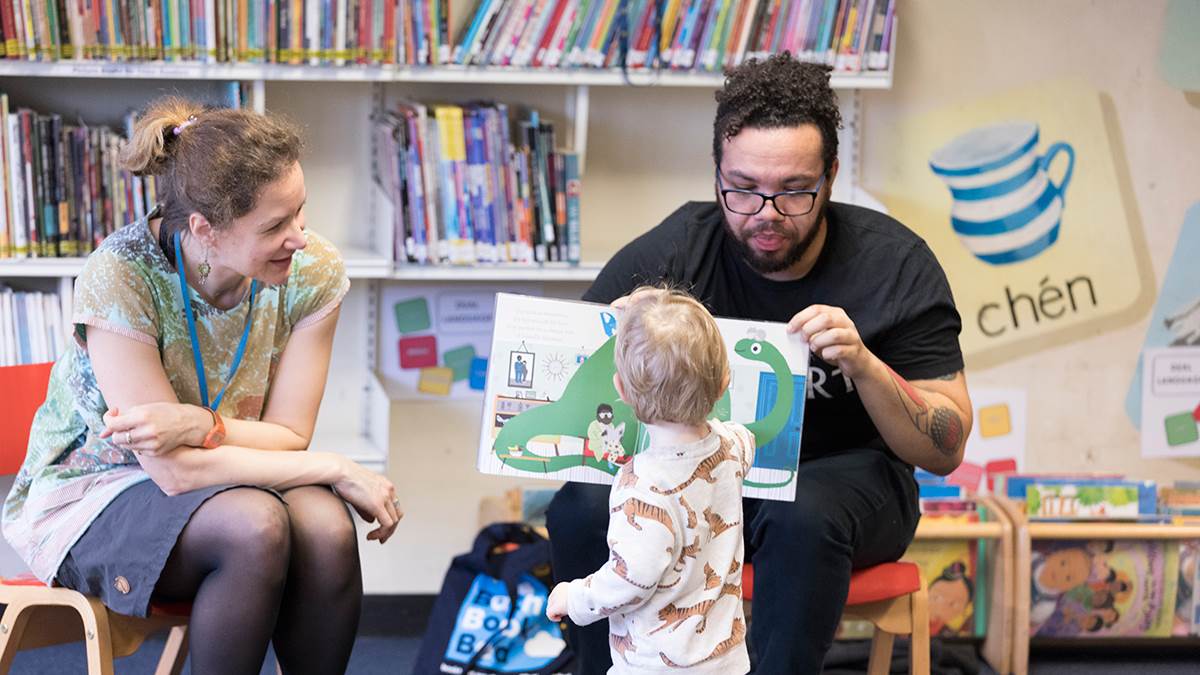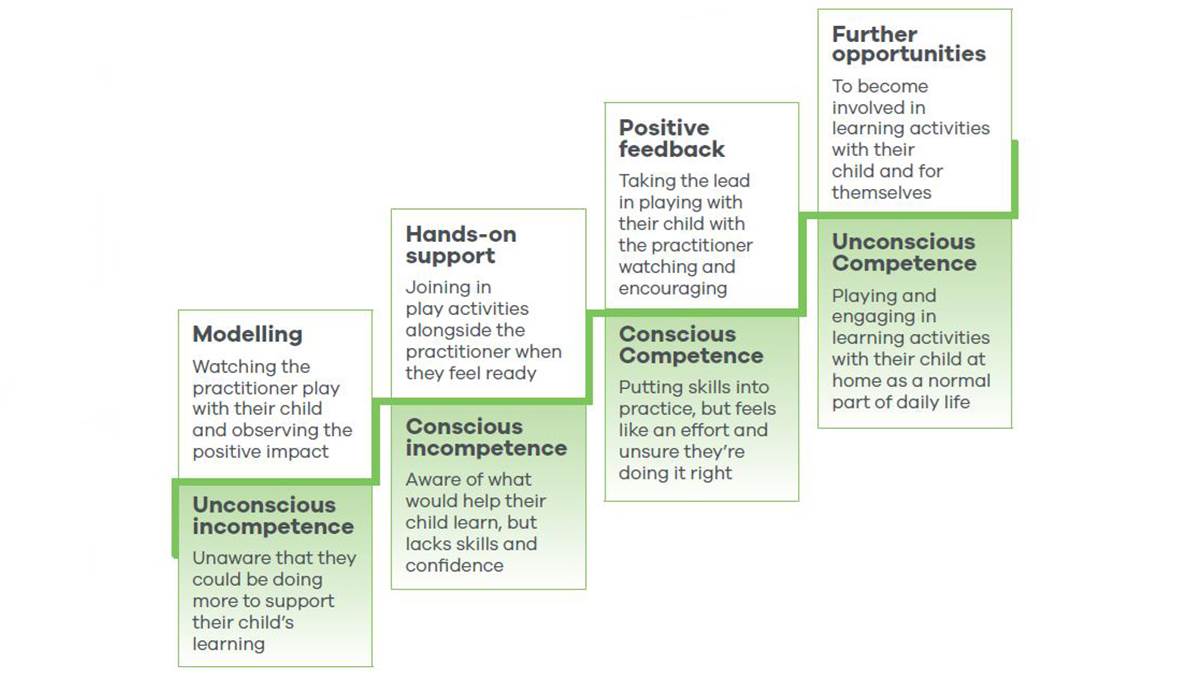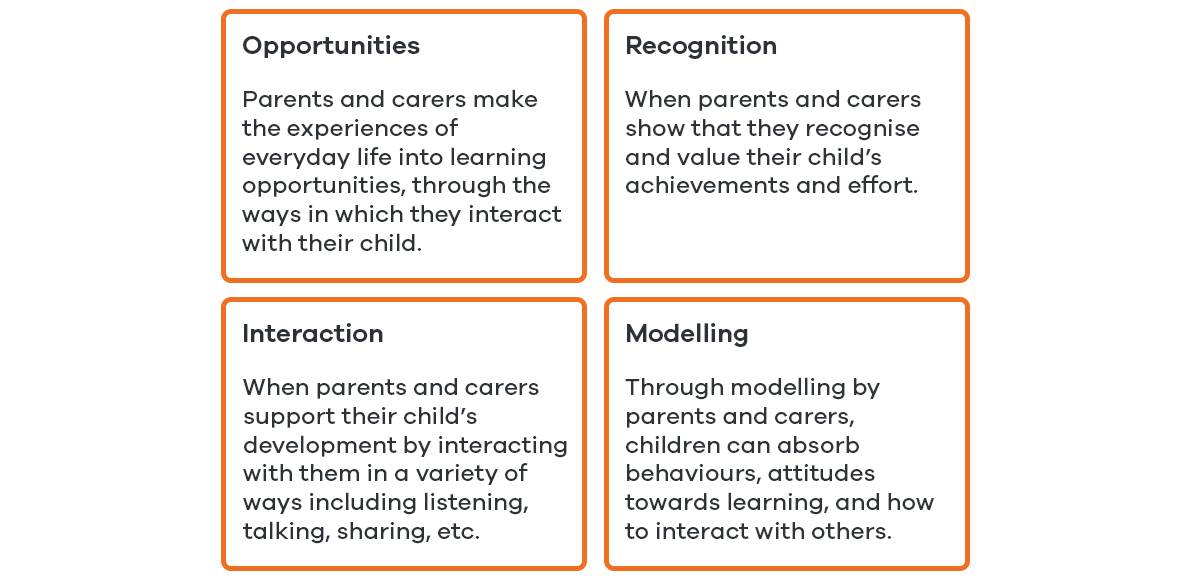Training for practitioners
Get yourself and your setting ready to deliver Bookstart Corner.

Take the Bookstart Corner Quiz
Test your knowledge on Bookstart Corner and the theory behind the programme
Delivering Bookstart Corner
Get the Bookstart Corner Handbook 2020-21
The handbook has everything you need to know about delivering Bookstart Corner, tips for running sessions and the theory behind the programme.
A quick guide to Bookstart Corner
The top five things you need to know to make the most of Bookstart Corner.
Information to help you prepare for and plan your sessions.
Find extra resources for you and your families, plus videos and tools for evaluation.
The Learning Stair
To identify where a parent/carer is with regards to supporting their child’s learning, you can use the Learning Stair model, reproduced from Early Home Learning Matters: Good Practice Guide by Kim Roberts.

Please note: this model is for reference only, and the terminology should not to be shared with families. It is a simple way of keeping track of a parent or carers’ development and prompts consideration about what they need from practitioners.
Download a quick guide to the Learning Stair model
The ORIM framework
Bookstart Corner aims to increase parent’s and carer’s confidence by helping them recognise what they are already doing to support their children and build on this. One way to do this is using the ORIM framework.
ORIM stands for opportunities, recognition, interaction and modelling. These are four practical ways that parents and carers support their children’s learning and development.

Download a quick guide to the ORIM framework
Activities with parents
You can do activities with parents to support them to recognise and implement techniques for reading and interacting with their child. Try out a couple of them before delivering Bookstart Corner so you know what to look out for.
Match the Rhyme Match rhymes with the skills that singing them can help a child develop.
Maia's Reading Journey video Watch the film of Maia reading with her parents from a young age. Look out for the ways Maia’s parents are supporting her, and how she responds to them.
